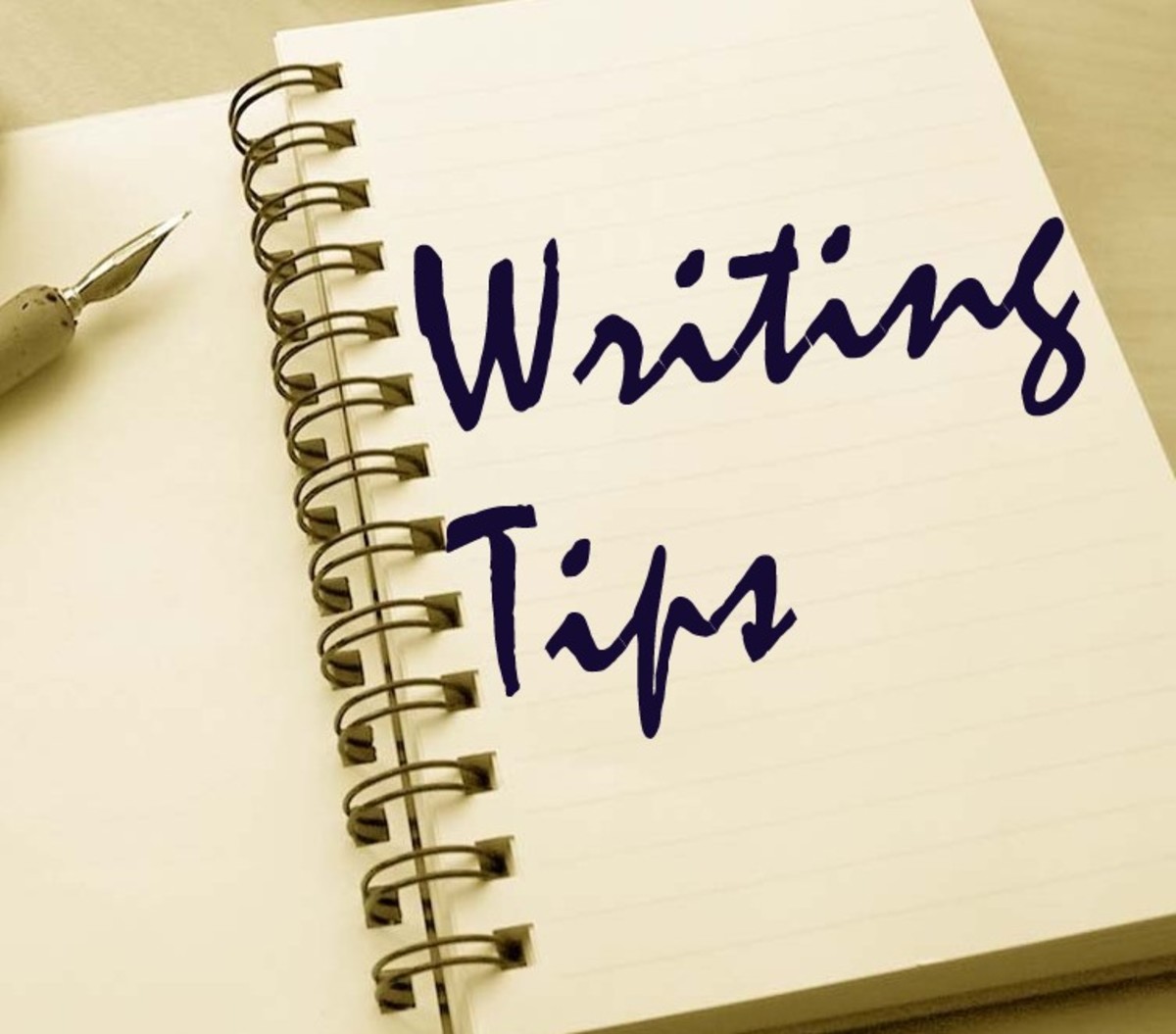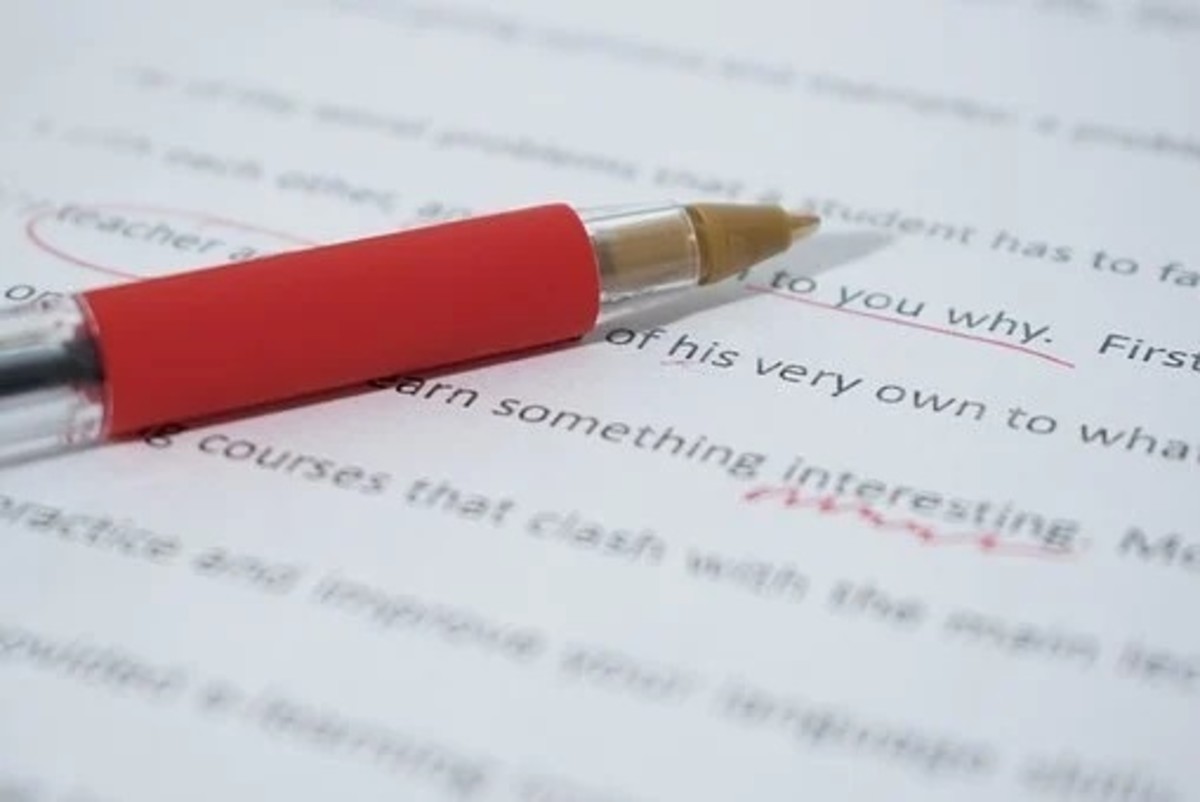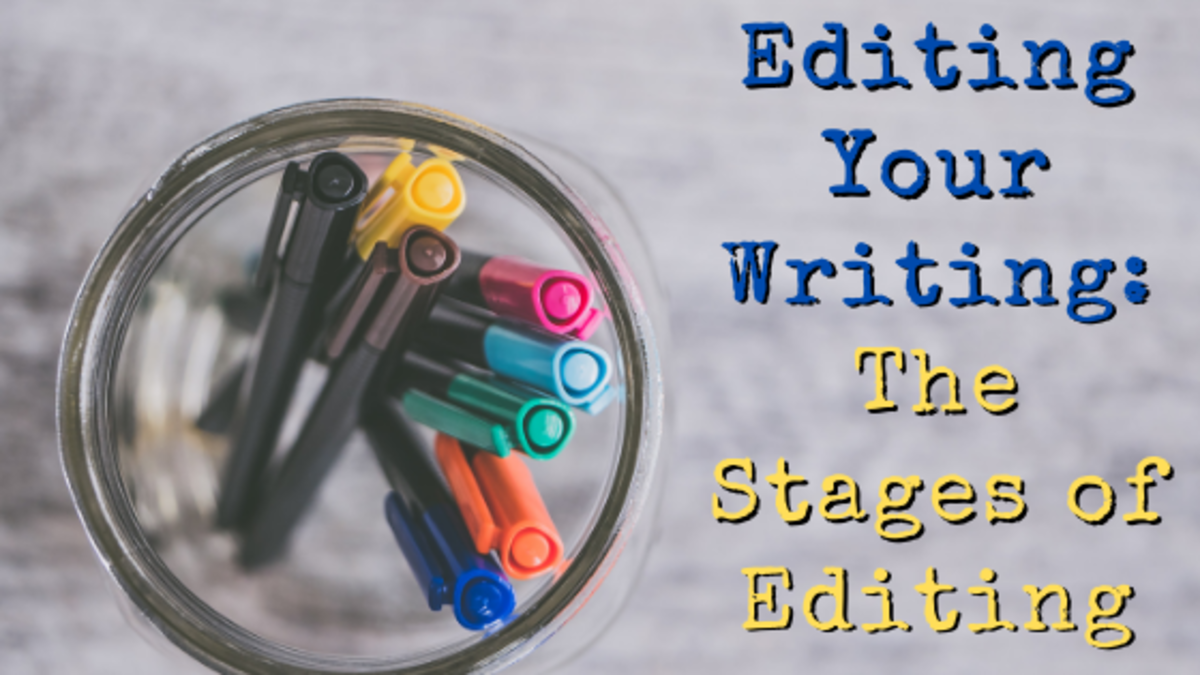How To Write: Improving Your Writing Skills
Writers on Writing
On Writing
Let's talk writing! Some people hate to write and others love the entire writing process. Of course, among the writing haters and lovers there are people who write well, and those who need a writing lesson or two...or ten.
Speaking as an aspiring novelist, I would say most writers fall somewhere in the middle. We (a collective 'we' here) may love to write one day, but absolutely loath it the next. Likewise, we may be excellent writers on a given Monday night, and then god awful the following morning.
No matter what category a writer falls under one thing is certain; all writers need to improve their writing skills. So, let's see if we can tackle this writing guide together...

Writing Tips: Stephen King
On Writing
Writing Skills
How do you improve your writing skills?
In my opinion, there are four important aspects of writing a writer must adhere to in order to sharpen their skills...Constantly write, flow, writer's voice, and editing.
First off, writers need to write. There's no going around it. Writers must write on a consistent basis in order to get better. Sorry, it's the rule.
Secondly, writers must to develop rhythm and flow. How? Well, there are several ways to go about it, but I like the "spit it all out" approach. For example:
For this particular writing block I went with the topic Writing Skills.Then I wrote down everything I knew about the topic...things like, the importance of flow and rhythm and writer's voice...Next, I picked a particular path. I went with a sequential approach such as first, second, third, etc.
And then comes the fun part. Writers must iron it all out. One sentence must transition to the next with absolutely no choppiness. Oh yeah, and it all needs to be coherent and at least somewhat interesting so that the writer doesn't lose their audience! Easy stuff, right?
Questions to ask yourself...
Don't worry, writing is actually simpler than it looks. For starters, try to organize your thoughts into paragraphs. Then, when you look at a particular paragraph, read it out loud as if you were reading to an audience. Ask yourself these questions:
Does it make sense? Are you interested? Does it sound choppy or boring?
If you don't 'feel' it, then listen to your instincts. Maybe you have to restructure a sentence. Or maybe you need to remove a sentence altogether.
In essence, establishing flow requires a little patience and the ability to recognize choppiness.

Finding Your Voice
Thirdly, a writer must develop a writer's voice. This goes hand and hand with rhythm and flow, but make no mistake, it is different!
Writer's voice provides the reader an inside track into the writer's mind. It sets up the writer's mood, rhythm, and tone. In short, writer's voice adds a little flair and personality to the passage. Without it, the writing will become stale and dull much like material found in an encyclopedia.
How to get a writer's voice
First, you need to develop rhythm and flow. This will establish a sort of cadence to your writing, providing a foundation for your writing style. Then you need to look at the message you are trying to portray to your readers. You need to ask yourself certain questions like:
Who's my audience? What's my tone? Do I need to be funny, witty, smart, informative, sarcastic, sympathetic, persuasive and/or argumentative?
Once you figure all this out, the actual writing process is somewhat simple. With a little practice and patience, you will find your writer's voice, guaranteed.

How to Edit Your Writing
Last, but not least, is editing.
Oy, editing...A tedious task isn't it? Although editing is the writer's best ally, sometimes the editing process can be a royal pain in the ass. It's hours and hours of rereading, rewording, revising, restructuring...-re -re -re -re...ridiculousness!
However, editing is by far the most important step. It can convert solid writing into a masterpiece. Likewise, editing can turn the insanely disoriented into something really special.
How to edit
Much like the writer's voice, it is important to read the material out loud. Pay attention to those crappy yet common grammar mistakes such as the wrong subject/verb agreement, fragmented sentences, run-on sentences, and split infinitives (Although, I must confess, sometimes I will purposely split infinitives to go against the grain. Honestly I think the star trek saying "to boldly go" sounds a heck of a lot better than "to go boldly".)
Then take a look at your flow and writer's voice, and see if everything is smooth.
Good luck!!!










